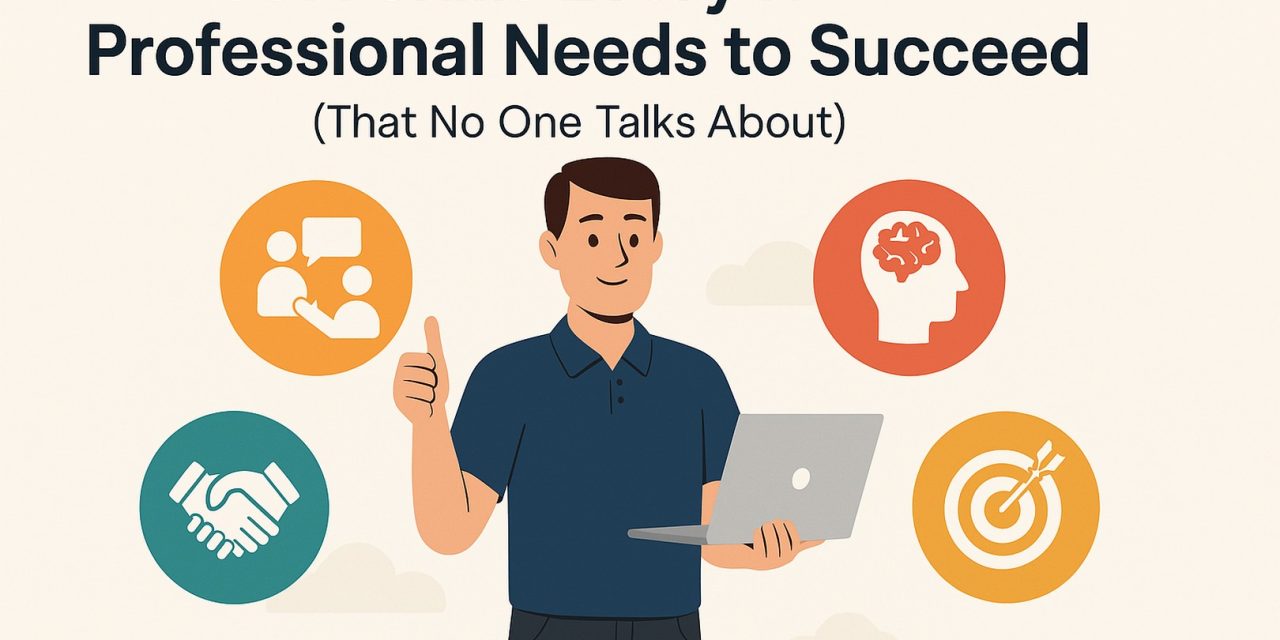Soft Skills Every IT Professional Needs to Succeed (That No One Talks About)
Introduction
Let’s be honest—when we think about IT careers, the first thing that comes to mind is technical knowledge: networking, cloud, scripting, cybersecurity. But the truth is, your soft skills can make or break your success in this industry. I’ve seen incredibly smart people struggle because they couldn’t communicate, and I’ve seen others shine simply because they knew how to listen, adapt, and build trust.
In this article, I want to share the soft skills that have made the biggest difference in my own IT career—skills no certification teaches, but every great IT pro masters.
1. Empathy (Yes, Really)
Empathy is your superpower. If you can understand how a user feels when their system is down or how a manager stresses over lost time, you’ll solve problems with a completely different mindset.
Empathy helps you:
- Design better systems.
- Explain complex issues without sounding arrogant.
- Earn trust across departments.
And trust me—people remember how you made them feel more than what you fixed.
2. Communication (Especially With Non-Tech People)
You might be great with CLI or PowerShell, but can you explain a technical problem to someone in finance or HR without losing them?
Great IT professionals:
- Avoid jargon when it’s not needed.
- Know when to listen instead of talking.
- Confirm understanding before offering solutions.
If your users “get it,” they’re more likely to value what you do.
3. Adaptability
Technology moves fast. What you know today might be outdated tomorrow. Your ability to adapt—to tools, teams, or priorities—will set you apart.
Examples of adaptability:
- Learning a new system on short notice.
- Adjusting your workflow when a sudden incident arises.
- Staying calm during outages or stressful rollouts.
Adaptability shows maturity and leadership.
4. Proactiveness
Don’t wait for things to break before you act. Be the one who:
- Spots a bottleneck before users complain.
- Suggests automation for repetitive tasks.
- Documents processes without being asked.
These habits quietly build your reputation as someone who gets it.
5. Business Awareness
Here’s something few tech folks are taught: your job exists to support the business.
When you understand how your work impacts revenue, cost, or customer satisfaction, your decisions become sharper. Ask yourself:
- How does this downtime affect our clients?
- Can we do this upgrade with minimal disruption?
- Is there a way to save money without sacrificing performance?
Thinking like this turns you into a true partner—not just a support person.
Conclusion
Soft skills don’t show up in your certification list, but they show up in your impact, your relationships, and your opportunities.
Whether you’re aiming to grow your role, lead a team, or move internationally with a visa like EB-2 NIW, these human qualities are often the X factor.
So yes, keep sharpening your tech stack—but don’t forget to upgrade your soft skills too. That’s where the real magic happens.



Comments